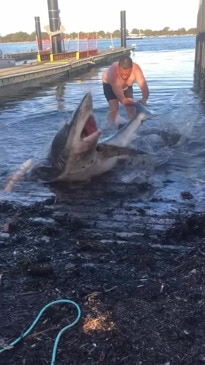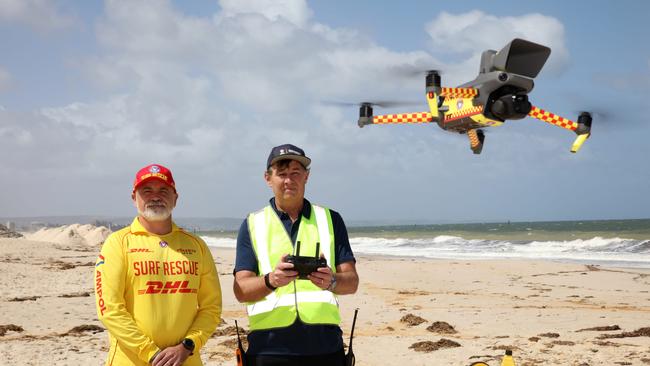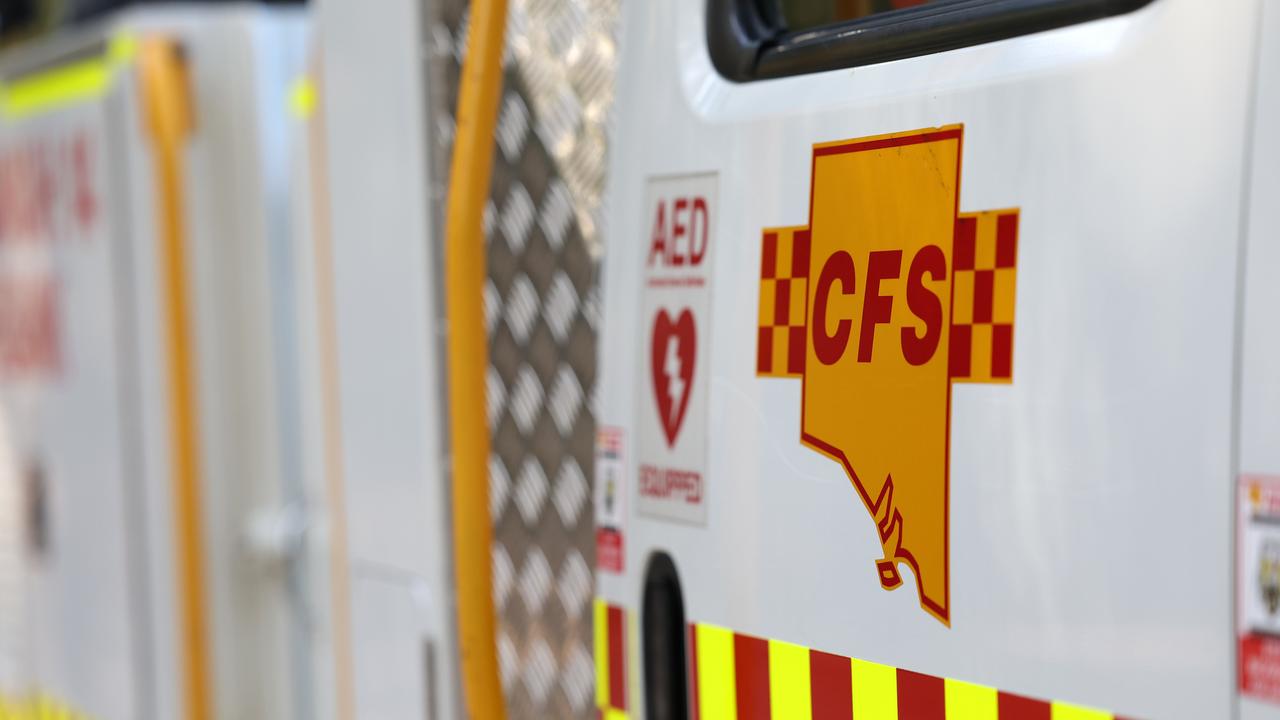Surf Lifesaving SA training drone pilots to spot sharks
A spate of shark attacks last summer and some recent sightings have scared many of us – but Surf Life Saving SA is taking steps to make the state’s beaches safer.

SA News
Don't miss out on the headlines from SA News. Followed categories will be added to My News.
More drones, more pilots and more cameras will be rolled out by Surf Life Saving SA this summer as it prepares to improve safety for swimmers and beachgoers.
Surf Life Saving head of lifesaving and emergency operations Sean Faulkner said given the tragedies of last year when three people killed by sharks there was a “hypersensitivity around sharks, not just in the community but even among our lifesavers’’.
Mr Faulkner said the organisation had run two courses to train 26 pilots, doubling the number of volunteers qualified to operate drones. It also has 14 with remote pilot licences that allows drones to be flown in restricted airspace around Adelaide Airport.
“In locations close to the airport, which does pick up major beach locations like Glenelg, we have to make sure we train those pilots to a higher standard,’’ he said.
Mr Faulkner, as well as shark experts, said fatalities from shark attacks were still extremely rare.
Shark Expert Andrew Fox said 2023 had been an “anomaly’’.
“Between February 2014 and May 2023 there were no fatalities,’’ Mr Fox said.

Mr Fox also said there had been a record low number of shark sightings around Neptune Island on the state’s west coast, where he runs tours.
A spate of sharks were seen off Aldinga Beach last weekend. A Surf Life Saving helicopter spotted a group of eights sharks, including bronze whalers and great whites.
According to the sighting log published by Primary Industries, there have been numerous sharks spotted through October and November. A great white was reported off Henley Beach on November 1, while two unknown sharks were seen at Glenelg the same day. The same day a great white was reported at Stokes Bay on Kangaroo Island.
However, the number of shark sightings in South Australian waters does not mean there are more sharks, according to one marine expert.
Professor Charlie Huveneers, director of Flinders University Marine and Coastal Research Consortium, said there was no firm evidence to suggest there were more sharks in South Australia than previously.
“While sightings can be helpful to detect potentially dangerous sharks, it is not a reliable way to infer trends in population size. Report of sightings can help people knowing when to leave the water when a potentially dangerous shark is in the area.”
“From a biological perspective, you’d expect that the number of white sharks has increased since protection 25 years ago. However, there is currently no scientific evidence showing whether this increase has occurred. Even if it did, it would not, by itself, explain the recent shark bites off South Australia or increasing shark bite trends in Australia.”
A state government spokesperson said The Government was “working through: potential shark mitigation measures from its Shark Taskforce established last summer.
More Coverage
Originally published as Surf Lifesaving SA training drone pilots to spot sharks





